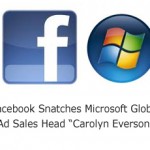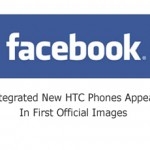 Barcelona, Spain — Twitter CEO Dick Costolo dismissed rumors that the popular microblogging social media company has ever held $10 billion takeover talks with Google or Facebook, and said reports of talks were “just a rumour”. “I do not know where these things come from,” he said at the Mobile World Congress trade fair in Barcelona.
Barcelona, Spain — Twitter CEO Dick Costolo dismissed rumors that the popular microblogging social media company has ever held $10 billion takeover talks with Google or Facebook, and said reports of talks were “just a rumour”. “I do not know where these things come from,” he said at the Mobile World Congress trade fair in Barcelona.
Delivering the second keynote of the day at the Mobile World Congress in Barcelona, the some-time stand-up comic gave a lively presentation, following the rather flat earlier keynote by Microsoft CEO, Steve Ballmer.
Costolo inquired whether Google could afford a $10bn acquisition — following rumors that this was the price being considered by the search engine firm for the messaging startup. “People write that stuff all the time … I do not know where these things come from, it is just a rumour.” He fell short of an outright denial, however.

Twitter’s chief executive Dick Costolo speaking at the GSMA Mobile World Congress in Barcelona. Photograph Albert Gea/Reuters
He also circled around questions about how the service, which has seen explosive growth, makes money.
“Every time I have an interview I am asked when we are going to make money. The short answer is we are already making money,” he said without going into detail.
Twitter, which had 175m users as of September, raised $200 million in a December financing round that valued it at $3.7bn. Nevertheless, Costolo refused to comment on Facebook, whose market valuation is worth of $50 billion after venture-capital firm Kleiner Perkins Caufield & Byers took a $38 million stake in the social media networking giant.
Perhaps Costolo visualizes some other way of cashing in on the value his organization brings to network T.V. Twitter has become a “second screen” alongside television, turning not only live T.V., but also programs such as the very popular Glee into social events in which people interact with each other.
Costolo said Twitter, which began operations in February 2006, proved its popularity with Barack Obama, Stephen Fry and Sarah Brown, is preparing to launch three new products to sell to advertisers. He refused to divulge the details of new services, but said they would launch this year and sit alongside Twitter’s existing products: promoted tweets, promoted trends and promoted accounts.
He also said that the company was able to show advertisers that users were watching their commercials. Currently, brands and advertisers can pay Twitter to display corporate tweets, accounts or trends with extra prominence. He explained that the company recently allowed Disney to buy the right to have “#ToyStory3” added below the list of the ten most popular trends.
Eden Zoller, an analyst at Ovum, said: “Partnerships were mooted — cue Google and Facebook, but Twitter once again demurred. In our view partnerships that go beyond integration deals would be a good move for the company’s future prospects, which are growing in terms of numbers but not much else.”
Costolo, who took over as CEO from co-founder Evan Williams, last October said Twitter was now regularly carrying 130m tweets a day, up from 100m at the end of 2010, and that its traffic peaked in Japan at the new year there were 6,000 tweets per second.
To prove the company’s extraordinary growth, Costolo contrasted the demand on his service during one of the key events in the U.S. sporting year.
“At the end of this year’s Superbowl we saw 4,000 tweets per second,” Costolo said. “During the game there were sustained periods when it was 3,000 tweets per second. Just to give you some contrast, during the 2008 Superbowl we served 28 tweets per second.”
He added that Twitter has embarked on a mission statement, which is to “instantly connect people everywhere to what is most meaningful to them”. He said that the notion that the site is simply for people to announce that they are going to the dentist missed its purpose: “it makes no difference that there are 100m raindrops during a day. The point is that some will have meaning to me.” The essence of Twitter’s usefulness was the way that it links people socially, he said.
His remarks came as the online gaming company Zynga became the latest social media company to enter the virtual gold rush fray. The maker of the unbelievably popular FarmVille game is reportedly holding discussions with investors about raising $250m in a deal that could value the three-year-old startup at $7bn to $9bn, according to the Wall Street Journal.


